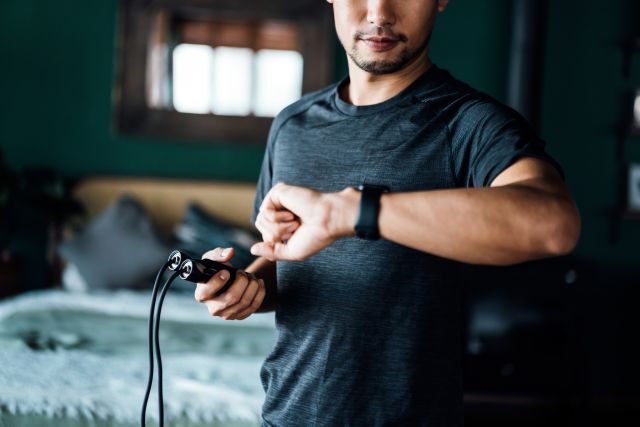Updated on January 11, 2024.
If you’ve watched TV in the last few decades, you’ve probably seen ads for a variety of drugs that claim to improve the symptoms of erectile dysfunction (ED). While medication is an effective treatment option for many people with ED, it’s not the only way to improve sexual function.
Understanding the causes of erectile dysfunction—as well as how to treat it and even help prevent it—may help you feel more in control of your sex life through the years.
What causes erectile dysfunction?
Certain medical conditions or medications can interfere with the ability to achieve an erection. When this happens repeatedly, it is called erectile dysfunction. A fairly common condition, ED affects an estimated 30 million men in the United States.
The causes of erectile dysfunction are varied. Countless muscles, tissues, blood vessels, and nerves are involved in the natural processes that lead to an erection. Any time this complex chain of structures and events is interrupted, ED can result.
Certain surgeries and injuries can cause erectile dysfunction, such as nerve damage that can result from prostate surgery. ED can also be caused by diseases that affect the tissues, nerves, or blood vessels involved in erections. These conditions include diabetes, kidney disease, cardiovascular disease (which affects the heart and blood vessels), and neurological disease (which affects the nervous system and nerves).
Some medications, such as blood pressure medication, antihistamines, and antidepressants may have ED-related side effects. Psychological factors—such as stress, depression, anxiety, and low self-esteem—may also contribute to up to 20 percent of cases of ED. Sometimes a combination of physical and psychological factors can contribute to erectile dysfunction.
Making lifestyle adjustments for erectile dysfunction
Medication is a commonly used and effective treatment for ED. But many people prefer to try making changes to their lifestyle first to see if they can ease the symptoms of ED without taking pills.
Common lifestyle approaches for ED include the following:
Maintain a healthy weight
A meta-analysis of studies published in 2021 in Andrologia found that among men with overweight or obesity, reductions in body weight and body mass index (BMI) were linked to better erectile function. Speak with a healthcare provider (HCP) about weight-loss strategies that may work best for you. (These may include some of the following steps.)
Move more
Another way to help ease ED and restore sexual vigor is to get regular physical activity. Research shows that exercise—even without a dramatic shift in weight—may positively affect sexual function.
Getting 40 minutes of moderate- to vigorous-intensity aerobic exercise four times a week for six months can improve erectile issues, according to a 2018 review of studies published in Sexual Medicine. The effect was particularly pronounced in people whose ED was caused by obesity, high blood pressure, physical inactivity, metabolic syndrome (a precursor of diabetes), or heart disease.
Not only is increased physical activity a great recipe for weight loss, but research has also shown it can help alleviate stress, anxiety, and mild feelings of depression—all common psychological causes of ED.
Generally speaking, people who maintain a healthy lifestyle that includes regular exercise are more likely to maintain erectile function with age. It's never too late to begin these healthy habits. Even people who increase their physical activity in midlife can lower their risk of developing ED, compared with people who are less active.
Eat well
ED is often a vascular disease, meaning in many cases it’s related to the function of blood vessels. Not surprisingly, many people with ED also have a higher risk of coronary artery disease (and vice versa). What’s good for the heart is also good for the penis.
Along with maintaining a healthy weight and staying active, eating a heart-healthy diet can also benefit sexual function. Make sure your diet contains plenty of colorful fruits and vegetables, whole grains, lean protein sources, and healthy fats like those found in seafood, nuts, seeds, and olive oil, similar to what you would find in a Mediterranean style of eating.
A 2020 study published in JAMA Network Open found that men younger than 60 years of age who most closely adhered to a Mediterranean eating style had a 22 percent lower risk of ED compared to men who didn’t follow the Mediterranean diet. Older men (those aged 60 to 70) also enjoyed an 18 percent lower risk of ED when following the eating style.
Kick the habit
If you smoke, quit. Smoking is a major contributor to erectile problems, even in younger men.
Meanwhile, while moderate intake of alcohol may not adversely affect your sexual well-being, excessive drinking can increase the risk of ED. If you drink, stick to no more than two drinks per day. If you don’t drink, don’t start, as alcohol doesn’t do your body any favors.
Taking preventive measures now can lessen your chance of losing sexual function later in life. Talk with an HCP to see if you are at your ideal weight and whether weight loss might be an effective means of restoring—or preserving—your sexual health.
If weight loss isn't the answer to your situation, remember there are many other effective solutions for treating and managing erectile dysfunction. Engaging in an open and honest dialogue with your HCP about your sexual health will help you find the best solution for your condition.







